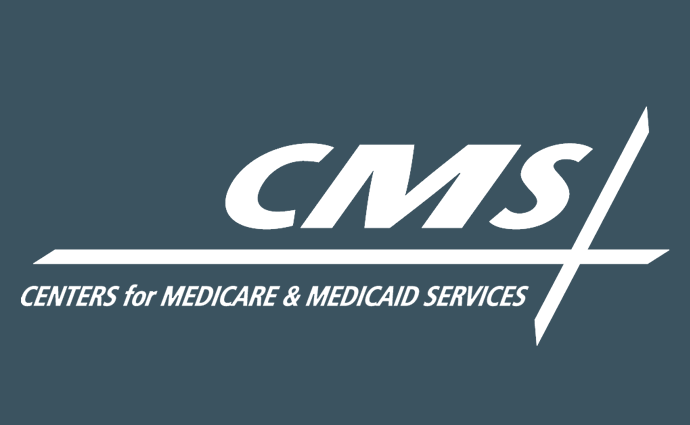CMS Seeks Info on a Direct Provider Contracting Model for Medicare
A proposed direct provider contracting model would allow Medicare beneficiates to privately contract with CMS and providers, but CMS wants stakeholder feedback before implementing.

Source: Thinkstock
- CMS is seeking comments on a potential alternative payment model that would allow primary care providers to directly bill Medicare beneficiaries through a direct provider contracting model.
Currently, providers must opt out of Medicare for two years if they enter private contracts to deliver covered services to Medicare beneficiaries. Providers who opt out do not receive reimbursement for any covered services delivered to Medicare beneficiaries, but they do get to bill patients at different rates.
The proposed direct provider contracting model would change that. If patients decide to participate in a direct provider contracting model, CMS would then contract with Medicare providers and suppliers who agree to be held accountable for the cost and quality of a defined Medicare beneficiary group.
The participating primary care practices would receive a fixed per beneficiary per month payment to cover all primary care services, such as office visits, office-based procedures, and other non-visit-based services covered under the Physician Fee Schedule. Practices would also be able to earn performance-based incentive payments based on their spending and care quality outcomes.
The model would allow Medicare beneficiaries to actively select to participate in the model unlike other alternative payment models, such as the Medicare Shared Savings Program (MSSP) or Comprehensive Primary Care Plus (CPC+) model, which assign beneficiaries to the model based on their provider’s participation.
READ MORE: Maximizing Provider Revenue with Payer Contract Management
CMS expects the proposed direct provider contracting model to make providers more accountable for the cost and quality of care they deliver to a designated population.
“Such a model would have the potential to enhance the doctor-patient relationship by eliminating administrative burden for clinicians and providing increased flexibility to provide the high-quality care that is most appropriate for their patients, thus improving quality while reducing expenditures,” the CMS announcement stated.
The federal agency developed the proposed alternative payment model after receiving comments from another Request for Information (RFI). In the fall of 2017, CMS called on stakeholders to comment on a new direction for the agency’s Innovation Center, which manages value-based purchasing and care demonstrations like the MSSP and CPC+ model.
CMS received over 1,000 responses to the RFI, including some on direct provider contracting. For example, the Alliance of Specialty Medicine urged CMS to allow physicians and Medicare beneficiaries to develop private contracts on a case-by-case basis.
“Medicare beneficiaries should not be prevented from using their Medicare benefits if they choose to see a physician that does not accept Medicare, and physicians should not face penalties or be forced to ‘opt-out’ of the Medicare program to contract with Medicare beneficiaries privately,” the group wrote. “At the same time, we recognize that not every Medicare beneficiary will choose to exercise their right to contract privately, and in some cases, private contracting may be inappropriate.”
READ MORE: Automating Healthcare Contract Management Improves Business Ops
“For private contracting models to be successful, we encourage the inclusion of appropriate protections for low-income and dual-eligible beneficiaries, as well as beneficiaries with emergency or urgent conditions, or those who do not have a choice of physicians.”
Private contracting could also allow consumers to seek high-quality care from providers who can deliver it at a price below the current Medicare rate, the American Society of Cataract and Refractive Surgery (ASCRS) stated.
“We encourage CMS to implement a demonstration based on the Medicare Patient Empowerment Act, which would allow beneficiaries not only access to physicians who do not find the Medicare rate sufficient, but also to physicians who may be able to charge a lower rate,” the society wrote.
However, other commenters warned CMS that weakening the rules on private contracting would harm Medicare beneficiaries.
“Medicare’s rules for balance billing and private contracting are important financial protections for Medicare beneficiaries,” AARP argued. “Half of all beneficiaries in traditional Medicare already spend about 18 percent of their income on premiums and other medical expenses. Without Medicare’s consumer protections, Medicare beneficiaries would face higher out-of-pocket costs from balance billing and private contracts.”
READ MORE: Value-Based Contracts Rely on Patient Attribution, Data Sharing
Higher payments would put additional financial stress on beneficiaries and limit their access to physicians, the organization argued.
“Patients would experience considerable uncertainty about how much services would cost, which could cause some to forego necessary care, and others to incur unexpected, unaffordable out-of-pocket costs,” AARP added.
A private contracting system that allows providers to directly bill Medicare beneficiaries at any rate would also create a “2-tiered system where those who can afford greater costs have access to more providers, eroding support for the Medicare program overall,” Justice in Aging contended.
CMS will continue to accept comments on the alternative payment model through May 25, 2018.
